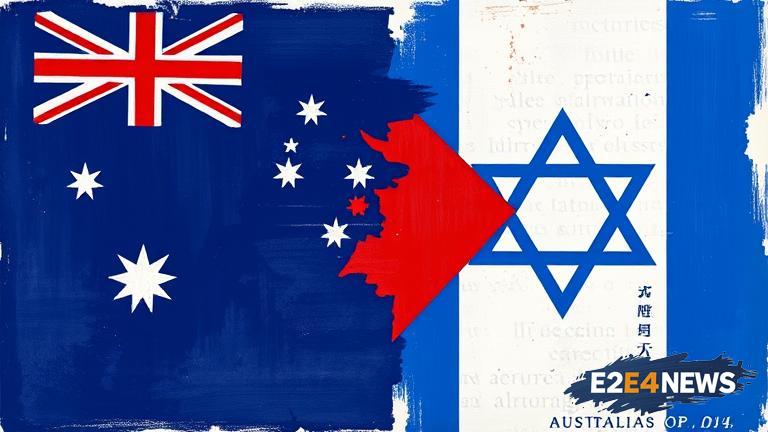In a recent statement, Australian Prime Minister Anthony Albanese revealed that the country will not be joining the French-led initiative to recognize Palestine as a sovereign state. This decision comes as a response to the growing international pressure to acknowledge Palestine’s independence. The French government has been at the forefront of this movement, urging other nations to follow suit. However, Albanese emphasized that Australia’s decision will not be made as a gesture, but rather based on careful consideration and a commitment to finding a peaceful resolution to the Israeli-Palestinian conflict. The Australian government has consistently maintained a neutral stance on the issue, advocating for a two-state solution that would allow both Israelis and Palestinians to coexist peacefully. Despite this, the decision not to recognize Palestine has sparked controversy and debate among Australian politicians and citizens. Some argue that recognition would be a crucial step towards achieving a lasting peace, while others believe it would only serve to exacerbate tensions in the region. The Israeli government has long been opposed to Palestine’s recognition as a sovereign state, citing concerns over security and territorial disputes. In contrast, the Palestinian Authority has been actively seeking international recognition, viewing it as a vital step towards achieving statehood and self-determination. The United States has also been hesitant to recognize Palestine, instead focusing on brokering a peace agreement between the two parties. As the international community continues to grapple with the complexities of the Israeli-Palestinian conflict, Australia’s decision not to recognize Palestine is likely to have significant implications for the region. The country’s stance may be seen as a setback for Palestinian aspirations, but it also reflects a commitment to finding a peaceful and sustainable solution. Albanese’s statement highlights the need for careful diplomacy and a nuanced approach to addressing the conflict. The Australian government will likely face criticism from pro-Palestinian groups, but it may also be seen as a pragmatic decision that acknowledges the complexities of the issue. Ultimately, the decision not to recognize Palestine underscores the need for ongoing dialogue and negotiation between the parties involved. The international community must continue to work towards finding a peaceful resolution, one that takes into account the legitimate concerns and aspirations of both Israelis and Palestinians. As the situation continues to evolve, it is essential to prioritize diplomacy and cooperation, rather than resorting to gestures or symbolic actions. The Australian government’s decision serves as a reminder that the path to peace is often fraught with challenges and complexities, but it is through careful consideration and a commitment to dialogue that we can hope to achieve a lasting resolution. The Israeli-Palestinian conflict is a deeply ingrained and multifaceted issue, requiring a comprehensive and nuanced approach. Australia’s decision not to recognize Palestine may be seen as a disappointment to some, but it also reflects a commitment to finding a peaceful and sustainable solution. The country’s stance may be subject to change in the future, but for now, it remains a significant player in the international efforts to address the conflict. The decision has sparked a lively debate among Australian politicians, with some arguing that recognition would be a crucial step towards achieving a lasting peace. Others, however, believe that it would only serve to exacerbate tensions in the region. As the discussion continues, it is essential to prioritize a nuanced and informed approach, one that takes into account the complexities of the issue and the legitimate concerns of all parties involved. The Australian government’s decision serves as a reminder that the path to peace is often fraught with challenges and complexities, but it is through careful consideration and a commitment to dialogue that we can hope to achieve a lasting resolution. In conclusion, Australia’s decision not to recognize Palestine as a sovereign state is a significant development in the ongoing Israeli-Palestinian conflict. While it may be seen as a setback for Palestinian aspirations, it also reflects a commitment to finding a peaceful and sustainable solution. The international community must continue to work towards finding a peaceful resolution, one that takes into account the legitimate concerns and aspirations of both Israelis and Palestinians.
